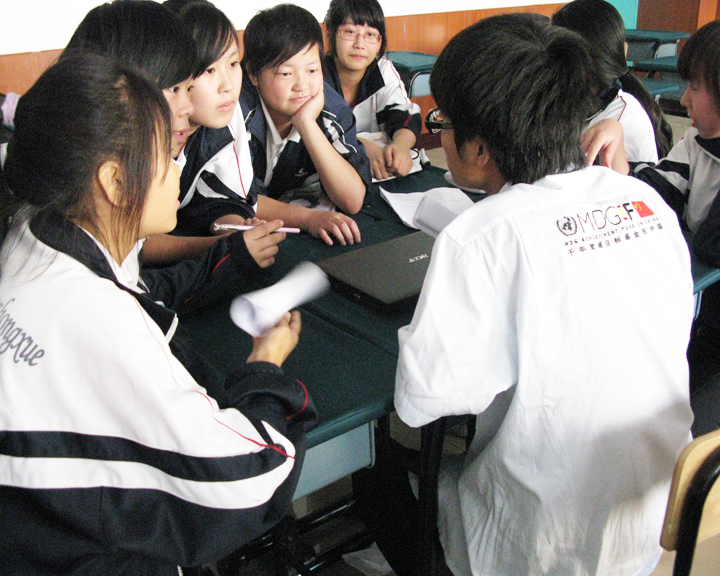

Helping China’s migrant youth adjust to life in the big city

Like millions of young people across China, He Yan left her home in a rural village right after she finished school, drawn to the promise of work and better opportunities in the country’s urban centers. She imagined that life in the city of Wuxi, several hours to the east, would be prosperous and bustling. Instead, Yan felt completely lost.
“Everyone is busy with working. There is very little communication and interaction, even between relatives and friends. For the first time I was in a city, I was confused,” said He Yan, now 24.
To make matters worse, her first job, in a small private garment factory, required very long hours and did not pay her a full salary. “I was so young and didn’t know anything about my rights. I just left after about three months without asking for full salary at all,” she says.
China is currently experiencing the largest migration in human history. More than 200 million rural people, many of them youths, have migrated to urban centers where they tend to take on unskilled and low-skilled work, contributing to China’s impressive economic development and its success in reducing poverty. But many migrants are ill-prepared for the transition to city life, and, like He Yan, their lack of knowledge about their rights means they can be easily infringed.
To ensure that China’s response to this massive migration is rights-based and poverty-focused, the MDG Achievement Fund worked with the government to support a battery of new legislation and policy reforms to improve migrants’ labor and civil rights as well as their access to better services and social security.
Some 400,000 people have already benefited directly from the MDG-F-funded Youth, Employment and Migration (YEM) programme. Working through nine UN agencies and local counterparts, YEM offers young migrants life skills training in the workplace taught by peer educators, tutoring for migrants’ children by university volunteers, and special life skills classes for rural students that will help them migrate safely, including tips on life in the city, employment, health, family and relationships.
17-year-old Wang Cong has been participating in a life skills pilot programme since last year at her vocational school in Cangzhou, south of Beijing. She says her friends who migrated have found it hard to adjust to life in the city, and that she shares what she is learning in her life skills classes with them. “I remind them to take precaution against trafficking in women and other frauds. That’s very important.”
“My friends in other schools are jealous. They come to my house after school and ask me to talk about the life skills training! They wish they were in the same school with me,” she adds. “Our life skills training classes are full of fun. And we are learning from that.”
Initially viewed with suspicion by school administrators who feared the classes, with their discussion of issues like relationships and family, could distract students from their academic work, the life skills participatory training method proved instead to increase students’ interest in studying and decrease the number of dropouts. Some teachers have adopted the methods into their own regular teaching, and city education officials decided to expand the classes to other schools and to include life skills training in the local school curriculum.
The YEM programme has also established youth- and migrant-friendly services in community health centers, an important support mechanism for migrants’ physical and emotional needs. It has also established the first web-based platform for the exchange of information on issues relating to China’s internal young migrants. (www.youngmigrants.org)
For He Yan, the life skills training she received through YEM not only helped her learn to advocate for herself, it is also helping others. Yan has become a peer educator for other girls at the meat-processing factory where she now works, and helps them navigate the sometimes difficult waters of personal relationships. Some young migrants, says Yan, rushed into relationships without considering the consequences: “It was too late when they unexpectedly became pregnant. It is important to have the knowledge in advance.”
Yan says she is happy to help her peers, to ensure that they are able to protect themselves in case their rights are infringed. “If I had the knowledge before I left home for work, I could at least find a way to argue and get the salary that I deserved.”
**************************************************************************************************************************
"Protecting and Promoting the Rights of China’s Vulnerable Young Migrants" was a MDG-F-funded Joint Programme bringing together nine UN agencies, more than 20 national partners and more than 100 local partners.
The effort was part of the MDG-Fund’s mission to help countries achieve the anti-poverty Millennium Development Goals, and to ensure that progress focuses on the poorest and most marginalized people.
Photo: A YEM university volunteer mentors migrant children.